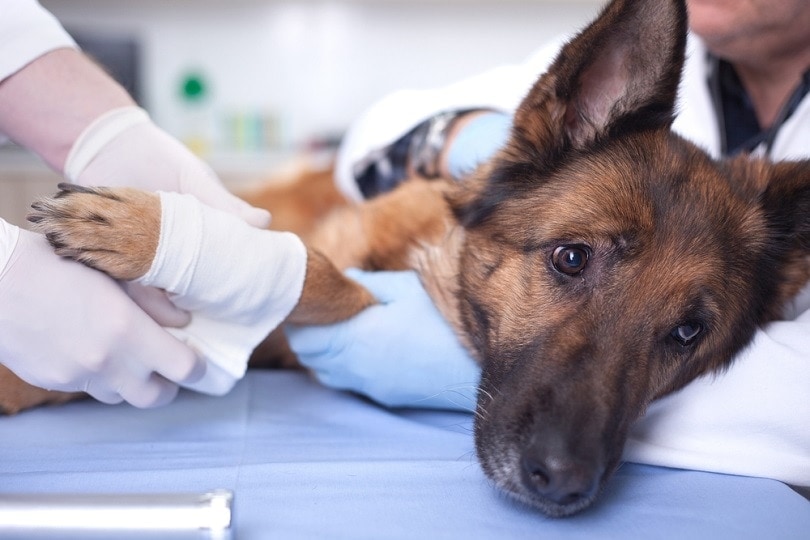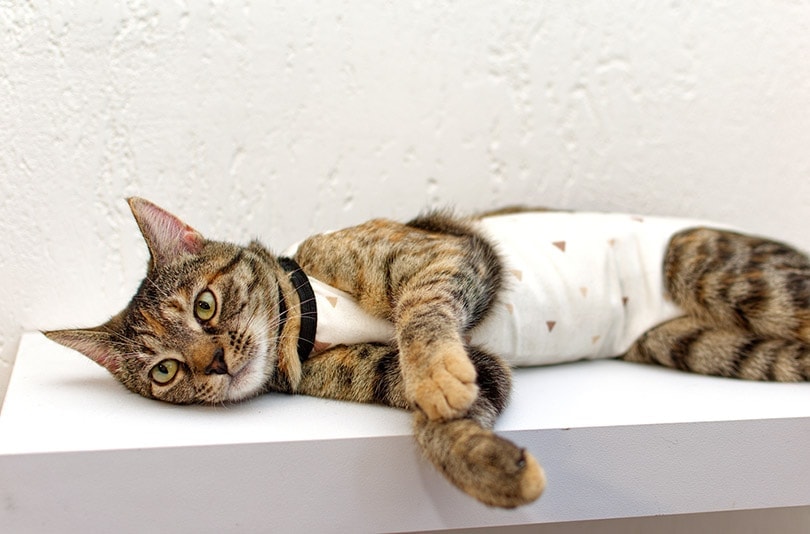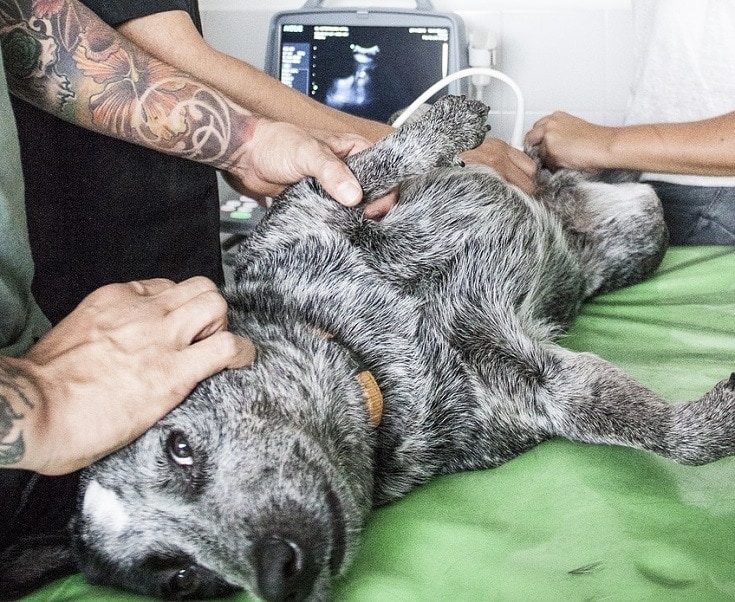Does Pet Insurance Cover Surgery? Insurance Standards Explained

Updated on

Most people want pet insurance to help cover some of the most expensive vet expenses, and few expenses get as costly as surgeries. The good news is that most pet insurance plans cover most surgeries.
However, there are a few exceptions, so we highly recommend that you keep reading. That way, you know exactly what your pet insurance policy will cover before you need to take your pet in for surgery.
We also give you a few more options to help with bills that your pet insurance plan might not cover.
Does Pet Insurance Cover Surgery?
One of the major perks of pet insurance is that it covers all medically necessary surgeries. However, this perk typically comes with a stipulation, depending on the type of pet insurance that you get.
There are plenty of accident-only pet insurance policies that won’t cover surgeries for regular medical issues. However, even these plans will cover surgeries that your pet needs because of an accident.
If you have a comprehensive pet insurance policy, it should cover medically necessary surgeries, although some plans specifically exclude dental surgeries.

Does It Cost More to Have Pet Insurance Cover Surgery?
Since comprehensive pet insurance plans cover medically necessary surgeries as a part of their regular coverage, you don’t need to pay more for them to cover surgeries. However, comprehensive plans do cost more than accident-only plans.
Also, if you want your pet insurance plan to cover dental surgeries, you might have to spend more to get this coverage. Some pet insurance plans include it as a part of their coverage, but others don’t.
Dive into the specifics of the plan that you’re looking at to see if it covers dental surgeries or if you need to spend more to get this coverage.
What Does Pet Insurance Not Cover?
While pet insurance plans typically cover most surgeries, that doesn’t mean they cover everything. For instance, if you sign up for a pet insurance plan after your vet diagnoses your animal with a condition, the plan won’t cover anything relating to that condition, including surgeries.
Pet insurance plans also don’t cover any routine or wellness care. Your annual checkups with the vet don’t qualify for coverage, and neither do vaccines and other preventative measures.
Finally, most pet insurance companies don’t cover any office visits or exam fees.

Optional Coverage Add-Ons
If the pet insurance plan that you’re looking at offers optional add-ons for its coverage, you’ll want to take a look at them. Not only do they highlight what you’ll get if you purchase the add-on, but it’s also a great way to figure out what the regular plan doesn’t cover.
Popular coverage add-ons include dental coverage, pet recovery programs, and alternative therapies.
Navigating all these different options, policies, add-ons and exclusions can be confusing. To make your choice easier, it is usually best to start by comparing the pet insurance companies’ plans against each other. Here are some of the top-rated pet insurance companies to choose from:
Top Rated Pet Insurance Companies:
Pet Wellness Plans
This is one of the most sought-after add-ons for pet insurance, and many companies are now offering something in this department. Pet insurance plans cover accident and medical expenses, while pet wellness plans cover routine care and preventive maintenance.
Pairing a pet insurance policy with a pet wellness policy is the best way to give your pet the maximum level of protection.
Just take a look at what the pet wellness plan actually offers, since it typically only covers preset rates for each area.
 Bottom Line
Bottom Line
If you’re wondering if a pet insurance plan will cover a more expensive procedure, like surgery, there’s a good chance that it will. While there are a few exceptions to this, for the most part, it’s easy to get a pet insurance company to cover a medically necessary surgery for your pet.
It’s one of the many reasons that we highly recommend getting your pet on a pet insurance policy sooner rather than later. If your pet does develop a preexisting condition before you sign them up, pet insurance won’t cover it, and you’ll be on your own to figure out how to treat them.
Featured Image Credit: VP Photo Studio, Shutterstock

 Bottom Line
Bottom Line








